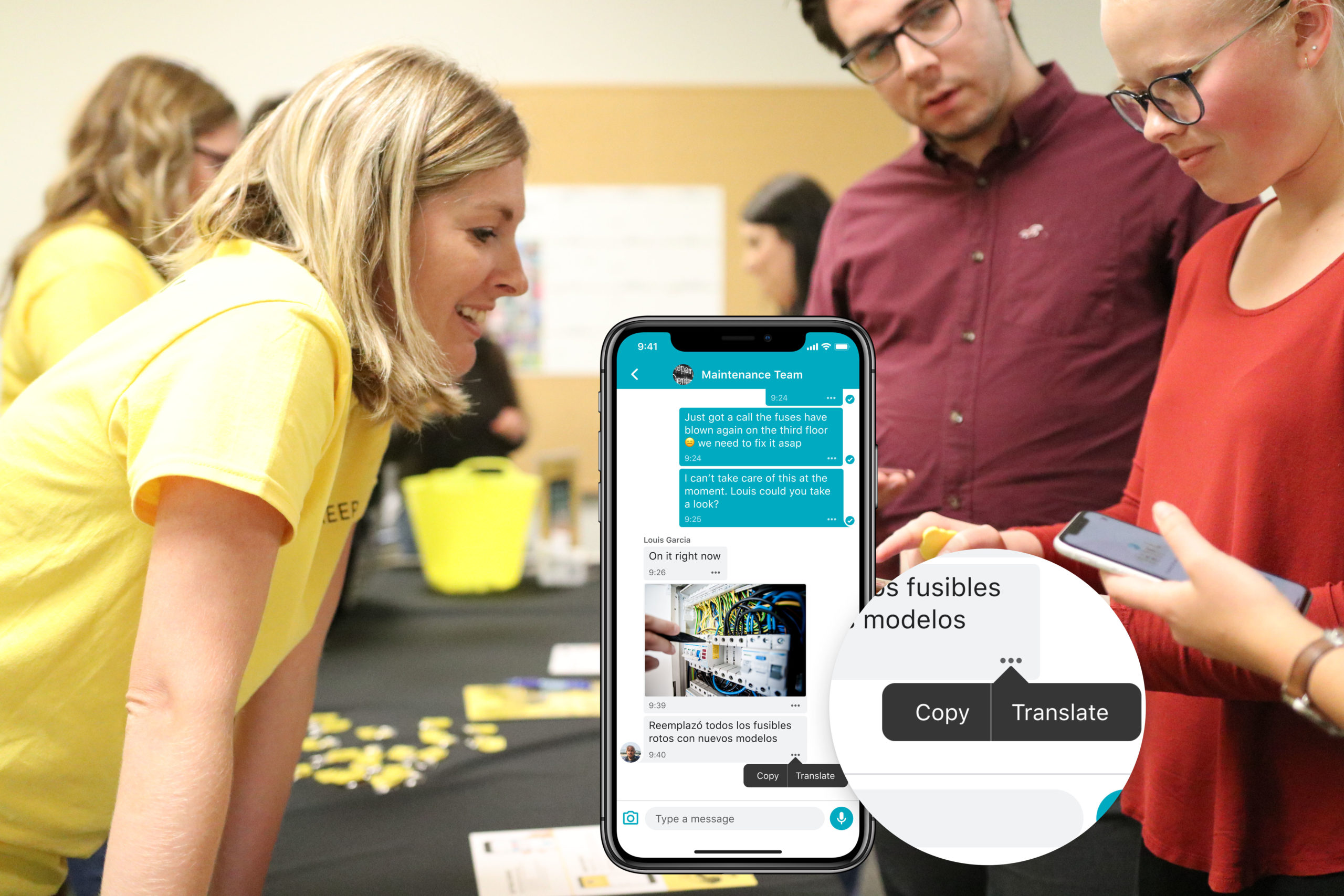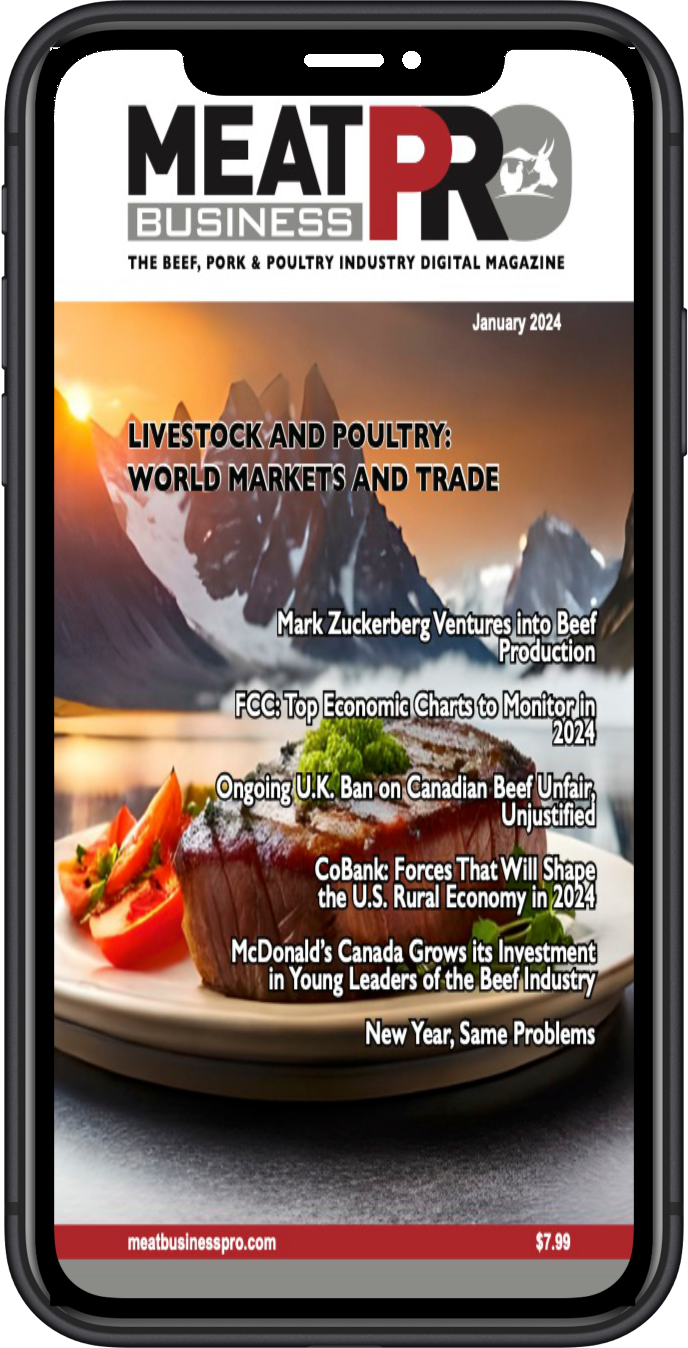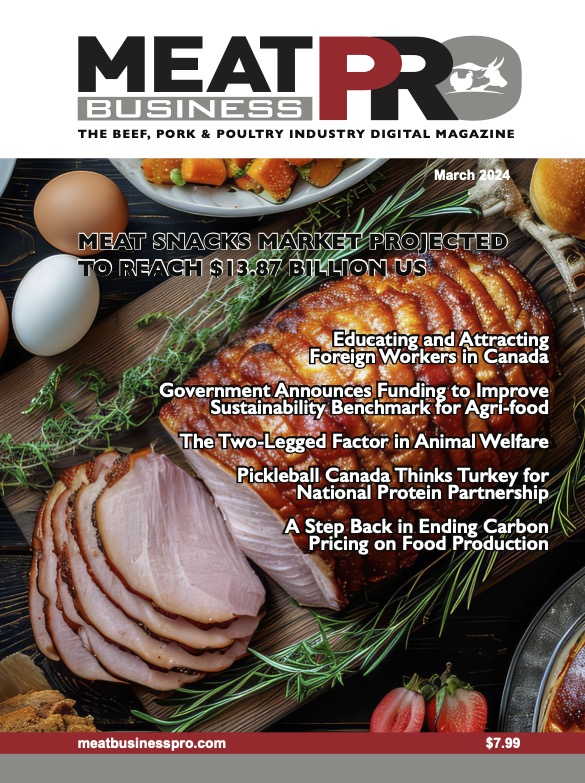HyLife and Beekeeper: The Employee Communication Platform that Softened the COVID-19 Blow

According to Dennis Brewster, Learning and Development Manager at HyLife Foods, one of Canada’s top pork producers, the company embarked on a search for a comprehensive solution to improve communications among their diverse workforce
Canadian Meat Business Q&A by Cam Patterson
It was a tall order, and eventually they found Beekeeper, a revolutionary employee focused mobile communications platform. Little did they know that only a few years later the world would come to a grinding halt while the COVID-19 virus spread at daunting speed. Beekeeper would prove to be the key to real-time safety and health tips getting to their barns because producers had to keep working, putting their lives on the line, to keep Canada fed while the rest of us hunkered down.
Every human being, country, and industry has been impacted by the global pandemic, but in the early weeks of the first wave, it was the processing industry, and the pork industry in particular that took unprecedented damage. HyLife may be the exception to the rule, and according to Dennis Brewster, the real-time communication between office and barn site could be the solution that tip the company’s odds in their favour.
Canadian Meat Business (CMB) spoke with Dennis Brewster (DB) to discuss the mobile-first digital communication infrastructure which allowed HyLife to support and protect their workforce with a unified channel for up-to-date, real-time communications.
“When it came to rolling out health and safety tips during the pandemic, Beekeeper was a game changer”
Dennis Brewster, Learning and Development Manager at HyLife Foods
CMB: With respect to COVID-19, how did Beekeeper play such an important role for Hylife?
DB: Beekeeper has taken on a whole new role in our company due to the pandemic.
CMB: Did you implement this program before COVID-19 hit?
DB: Yes we did and that takes us back to the beginning. The reason Beekeeper was even on our radar, was because we are a company that has the majority of its employees on barn sites, and historically we had no real-time solution to sharing information internally. Prior we had typically shared employee information via an intranet site that was accessible only when you were inside our network, or via company email, or by Cisco “Jabber” – which is basically an instant messaging app but by no way the solution we needed.
The only way we could communicate with our entire company was via payroll stuffers. Believe it or not we were actually mailing out payroll stubs to employees, so workforce communication typically was through good old fashioned mail. So, naturally, that is not timely when you’re in a situation where mission critical information needs to reach employees in as “real time” as possible.
Some of our barn sites still have fax machines, which was one way to message, and from time to time we would put up posters for everything from health and safety tips and guidelines to company parades and picnics. Not the most expedient method. So we had a problem in that we couldn’t talk to our workforce in a timely manner and so we set out to alleviate that problem.
Oddly enough, the issue came up in one of our employment engagement surveys that we did several years ago. A common note from our workforce was that they often felt like they were getting second hand information by the time they received it. Essentially, if we had a request for the barn it typically had to go through a production manager, then to a barn manager, and finally to an employee and then all the way back up that cycle again. So things were getting lost in transition.
We looked around at a few different platform solutions and ultimately Beekeeper was the product that won out. There were a couple of key reasons. One was our comfort level with Beekeeper as well as the platform’s “Real-time In-Line Translation” feature. It allows us to communicate with our employees in their first language. This was a big selling point for us being a company with such a diverse workforce.
CMB: This real time communication must have helped HyLife’s ability to provide up-to-date information when it came to working under a pandemic threat.
DB: Well, there’s the fundamental shift. When we first launched Beekeeper it was primarily a support mechanism to enhance our existing methods of communicating with our barn sites. But since COVID-19 hit it has become the main source of how HyLife shares all our internal information to our people. So there was a true flip insomuch as we still use those former methods of communicating, but now all that information lives on Beekeeper first and foremost. Due to the COVID-19, it has become our employees’ go-to for where they can now login to their own account and get up-to-date, mission-critical and/or safety information. This has been crucial during the pandemic.
As a result our staff engagement numbers which reflect how many employees are using Beekeeper, went up significantly. It also aided greatly in bringing new employees on board as we recently saw when HyLife purchased Prime Pork from Taylor Corporation in Minnesota. It’s not small task to get a newly acquired company and their staff up to speed during a pandemic like what we’ve been going through, but we managed to get those new staff onboard with Beekeeper in record time – even when considering the COVID-19 spread down there. Along with that, we’ve managed to have no cases of infection in any of our plants. I find that quite remarkable and I’m certain that real-time, back-and-forth communication played an integral role in our success.
CMB: Communication breakdown seemed to have a played a role in the spread of the virus in some processing plants in Canada. Sounds like HyLife fared well overall.
DB: Our entire HyLife workforce and their communities have done a phenomenal job during COVID-19. We all know the pork sector – and meat sector overall – has been devastated by COVID-19. That said, HyLife was quick to react and worked to get out in front of the pandemic. For example, our processing plant in Neepawa is are a very close-knit community and they have done a fantastic job working together with HyLife to ensure everyone’s safety. We have not had a single case of COVID at our Neepawa plant through this whole event. They rigorously carried out daily health checks and practiced strict social distancing. Through this we shared tips and heathy and safety information, all of which goes out over Beekeeper in real-time. But, honestly, it was our Neepawa workforce that really jumped on it and stuck to it. It didn’t matter if it came down to family members having to isolate together, or people car-pooling together, they were diligent. At the onset of the pandemic we even had people who were visiting family overseas and when they came back they were taken care of immediately, whether it was sequestered in hotels, it didn’t matter. They did an absolutely amazing job. I mean that wouldn’t have worked if only a portion of the workforce took the threat seriously. But they all heeded the called and took those necessary steps. So, as of today, I can confidently say we have had no positive cases of COVID-19 at our Neepawa plant. I couldn’t be more proud of what I saw among out team.
CMB: Do you think that is a result of both HyLife’s approach to employee communication and awareness, as well as being in Manitoba, which holds some of the lowest numbers on record for the pandemic globally.
DB: Definitely because of both. I think our employees really stepped up to the plate, and were COVID responsible outside of work. Our leadership was serious and committed to educating staff and doing daily health checks – which they continue to do even now. But we can’t overlook the logistical advantage here because Neepawa is a remote town. In all likelihood if all those factors had not played into it, I’m sure the scenario would have been quite different. But the effort from everyone would’ve been the same.
CMB: So what does it mean going forward for HyLife and the Beekeeper platform?
DB: First of all, Beekeeper will continue to grow with us. Secondly, it’s not just tantamount to the COVID-19 experience. Regardless of how diligently we adhere to bio-security protocols, the pork industry has had its fair share of viral setbacks with PEDv and ASF to name a few. So it is quite difficult to always be out in front of the next viral infection threat, and keeping our people informed, prepared and coordinated in our efforts to mitigate infections to our herds. So we have to commit to going down that trail of continuing to educate our workforce on how they can better use this Beekeeper app to communicate with our employees.
And that brings me back to why Beekeeper’s real time translation was such a huge winner for us, especially with the addition of Prime Pork and the number of Spanish speaking staff we have there, because we have such a wide range of languages. What Beekeeper has actually done that was groundbreaking, is they’ve rolled that translation feature into chats. So you could have 10 different real-time conversations with 10 different people in 10 different languages and no one participating in that chat thread would know the difference because it’s real-time, in-line translation. That has improved not only daily communication, saving us countless hours of down time while eliminating that “second-hand” information problem, but our frequency and accuracy of our engagement surveys, which is invaluable for our industry, has improved 10-fold going forward.
What I like telling our workforce is that Beekeeper is like picking up the Saturday paper. Everybody reaches for a different section, everybody is interested in different things, but there is not one employee at HyLife that can say, “I don’t have access to this information right now.” And when it came to rolling out health and safety tips during the pandemic, this was a game changer.












